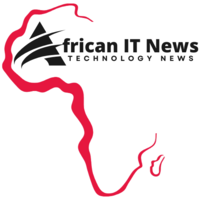Through what it calls the Spark Programme, Huawei’s cloud division will invest R100 million in 1000 local start-ups and SMEs over the course of the next three years in an attempt to cut South Africa’s cloud latency by half.
Additionally, later this year, the Chinese technology behemoth plans to introduce its third availability zone (AZ) for cloud services in Johannesburg, South Africa.
This was revealed at the Huawei Eco-Connect 2022 conference, which Huawei South Africa’s Enterprise Business Group hosted on Friday at the Sandton Convention Centre.
The South African market is considered to be the “most crucial” area in terms of its strategy, according to Mark Chen, vice president of global marketing and sales service for Huawei Cloud, who gave his lecture online.
He declared,
“Huawei Cloud is committed to investing in our customers’ and partners’ growth. Huawei Cloud is pleased to announce its R100 million investment in South African partners’ growth.”
Mark Chen
The investment would help local SMEs and start-ups strengthen their capabilities, according to Jay Zhou, MD of Huawei Cloud SA.
In May, Huawei Cloud made its original announcement that it will collaborate with Silicon Cape to support start-up businesses, promising to guide them through the ins and outs of cloud adoption to help them grow.
On Friday, Zhou formally announced the partnership project and noted Huawei Cloud’s dedication to South Africa and the growth of start-ups and SMEs.
“We refer to it as the Spark Programme. This hybrid accelerator programme helps start-ups and SMEs grow their businesses and solutions while also assisting them in marketing those solutions.
Others can join the programme, he said, even if it focuses on particular industries like cloud-native, banking, education, retail, manufacturing, and media.
“You are invited to join us if you are a technical company. We’ll also offer go-to-market assistance, financing assistance, engineering technical assistance, and help for training and mentorship.
Zhou stated that the programme’s recruiting of start-ups began this month and that categorization, sign-up, and kick-off will follow in August, September, and October, respectively.
Dr. Sumarie Roodt, a strategic partner at Silicon Cape, stated that both organizations are focused on audacious goals for the continent. Within the next 10 to 15 years, Africa is poised to become one of the largest global consumer marketplaces.
“With the African Continental Free Trade Agreement in place, e-commerce is blossoming across the continent, and we couldn’t think of a better time to partner with Huawei.”
She mentioned that a search for 20 start-ups in the South African ecosystem that wish to utilize the cloud and accelerate their business growth has started.
The initiative also aims to educate new businesses and provide them with the appropriate resources to support their creative ideas.
Leo Chen, president of Huawei Southern Africa, announced the launch of Huawei’s third AZ for cloud services in South Africa and noted that it occurs three years ahead of schedule.
The AZ will cut cloud latency in half once it goes live, he said. For Huawei Cloud, South Africa is a crucial strategic market.
In South Africa, Huawei launched Huawei Cloud in 2019, the company’s first availability zone for cloud services. The business unveiled a second availability zone in 2020, again centered on Johannesburg.
The Chinese company is providing localized public cloud services from leased data centers through a Johannesburg-based partner, despite the fact that it currently has no local data centers of its own.
Huawei Cloud currently has four locations in Africa: two in South Africa, one each in Nigeria and Kenya.
Mark Chen claims that Huawei Cloud offers more than 200 cloud services through 65 availability zones spread over 22 regions, in conjunction with partner operations.
“As the first cloud service provider, we established an availability zone in South Africa in 2019. This year, we’ll introduce the third availability zone in Johannesburg, which will help us grow our clientele and compete better in this industry.
According to Zhou, public cloud investment is expanding by 32%, while Huawei Cloud customers in South Africa have climbed by 150% and revenue has grown by 220%. Additionally, in the previous year, the Huawei Cloud partner system in the local market expanded by 80%.
“I believe we still need to do more in the future. My goal is to create a trusted cloud in South Africa that South African businesses can use with confidence.


